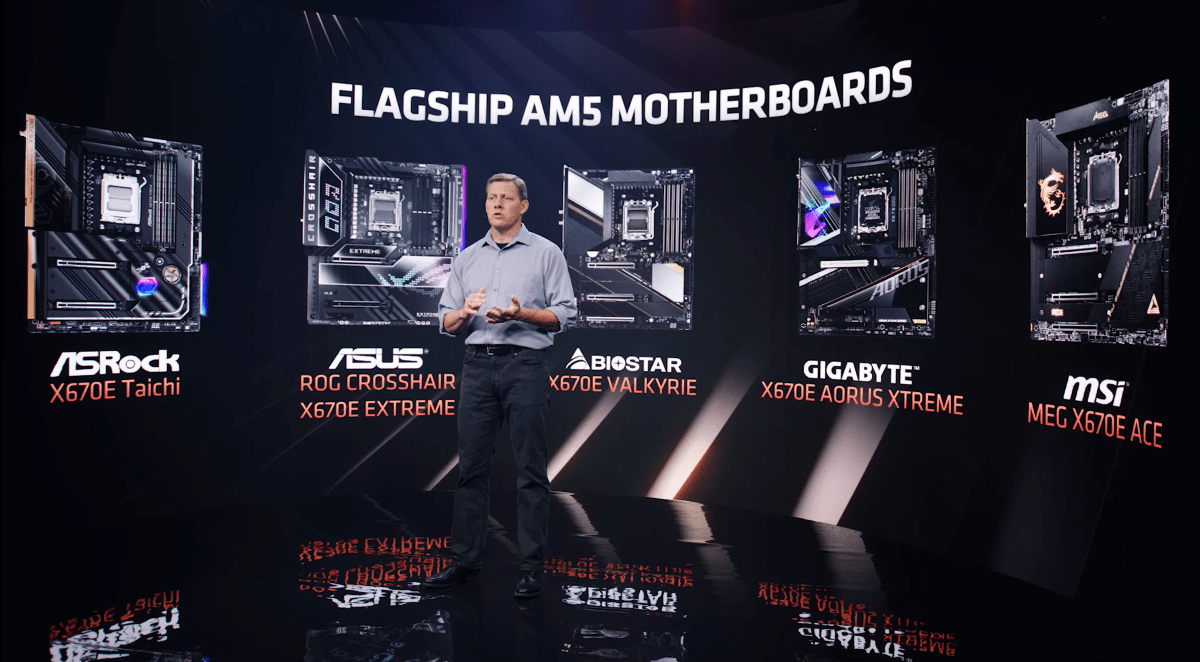
 Image: AMD
Image: AMD
AMD will ship its next-generation Ryzen 7000 processors this quarter, AMD executives confirmed Tuesday. That means Ryzen 7000 will hit the streets by the end of September.
Previously, AMD had said that Ryzen 7000 would ship in the second half of the year, but the company narrowed its release schedule in a conference call with analysts. AMD representatives indicated that the change in timing should be taken as a clarification, not as a change in the company’s roadmap.
AMD made clear that Intel’s unexpected, catastrophic loss this quarter was mainly due to Intel’s execution, rather than wider industry problems, with AMD delivering record revenue for the eighth straight quarter. The good times appear ready to keep rolling, too. Chief executive Dr. Lisa Su said that AMD’s fourth quarter will be highlighted by the company’s new lineup of 5nm products, “that we’re very excited about.” Those include the Ryzen 7000 lineup but also Radeon’s next-gen RDNA3 graphics cards. AMD expects the new RDNA3 GPUs will deliver more than 50 percent generation-over-generation improvement, a combination of design as well as the 5nm process technology.

Ryzen 7000 CPUs will slot into motherboards featuring AMD’s new AM5 socket.
Ryzen 7000 CPUs will slot into motherboards featuring AMD’s new AM5 socket.
AMD
Ryzen 7000 CPUs will slot into motherboards featuring AMD’s new AM5 socket.
AMD
AMD
Ryzen 7000 should run well over 5GHz, using the new AM5 socket, according to previous AMD disclosures. In January, when AMD first announced the Ryzen 7000 and its Zen 4 architecture, the company specified the “second half” of 2022 as the launch date for the new chip. At Computex, AMD executives nailed down “the fall” as the launch timeframe for its new processor. Now, it’ll be ready by the end of September.
AMD executives wouldn’t say exactly when the new Ryzen 7000 chips will launch or whether they would generate revenue in the third quarter. However, the names of four chips — the Ryzen 9 7950X, Ryzen 9 7900X, Ryzen 7 7700X, and the Ryzen 5 7600X — leaked on AMD’s own website, according to VideoCardz. Unfortunately, key details such as price, core counts, and clock speeds have yet to be officially confirmed.
What AMD’s results do tell us, however, is that Ryzen’s momentum continues, and that PC makers and end customers continue to buy in.
Author: Mark Hachman, Senior Editor

As PCWorld’s senior editor, Mark focuses on Microsoft news and chip technology, among other beats. He has formerly written for PCMag, BYTE, Slashdot, eWEEK, and ReadWrite.
Recent stories by Mark Hachman:
No, Intel isn’t recommending baseline power profiles to fix crashing CPUsApple claims its M4 chip’s AI will obliterate PCs. Nah, not reallyIntel says manufacturing problems are hindering hot Core Ultra sales




